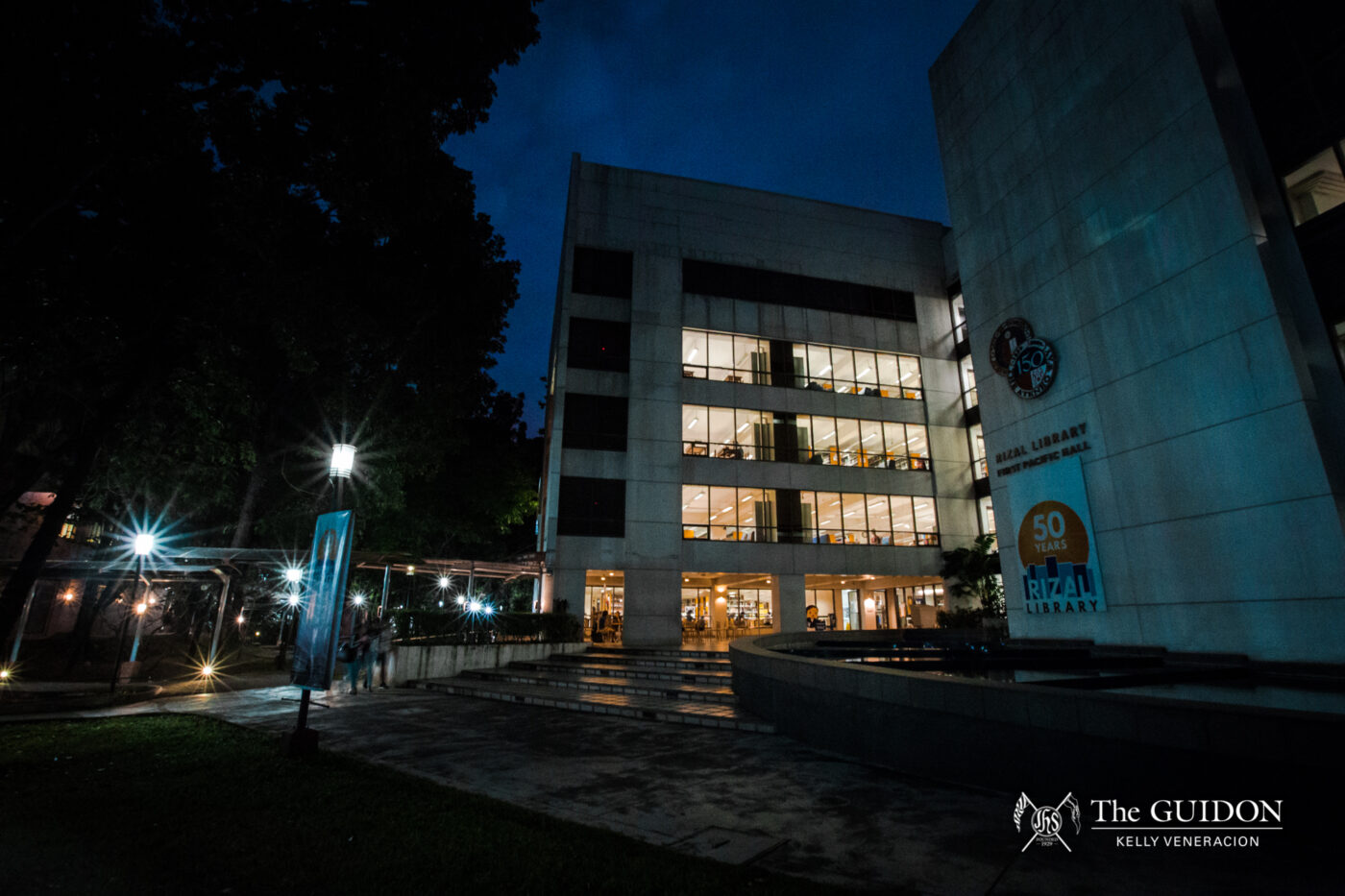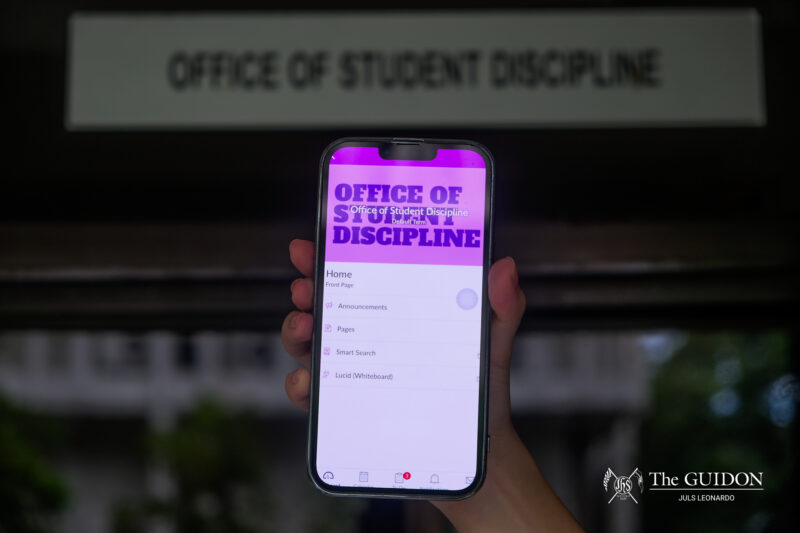THE RIZAL Library is considering 24-hour service to the Loyola Schools community after requests and petitions began surfacing on social media. The idea first appeared in a post on the ADMU Freedom Wall Facebook page on October 28.
Rizal Library Director Vernon “Von” Totanes, PhD responded to the post, saying that while he was “willing to consider the suggestion,” he would like to hear more on it. He said that he needed the members of the Ateneo community who wish to push for this agenda to help “justify additional costs in manpower and electricity this move will entail.”
Consequently, the Sanggunian conducted a survey to gather the insights and suggestions of the community. “Right now, we need data to propose something. Sir Von is very open in general as long as you prove it’s a need,” Sanggunian President Hya Bendaña said.
The proposition is also considering the library staff that may be affected by night shifts. However, Totanes said that he “had yet to talk” to the staff about the matter, though he had “informally” talked to some librarians.
Justification
Totanes said that although the idea had been brought up in the past, it has not been clarified by its proponents.
“Almost from the time I got here in 2013, people have been petitioning for a 24-hour Rizal Library. There is always that ‘Why?’ and I never got an answer,” he said.
Totanes compared the idea to the Matteo Up All Night project, which has been implemented by the Sanggunian since the second semester of school year 2017-2018. It provided students a 24-hour opening of the second floor of the Matteo Ricci Hall, allowing them to work overnight around the week of final exams.
While the project had been successfully implemented, the Matteo Up had a “tight atmosphere” due to the number of students utilizing the service, according to a report by the Sanggunian Department of Strategy and Development (DSD). Some suggested extending the work space to Matteo Down and to the New Rizal Library.
The report said that this suggestion would “not only alleviate the discomfort felt by students,” it will also “prompt more students to utilize the service.”
Totanes then explained that the circumstances are different with the Rizal Library, and there is more to consider. “Do they want to open everything? Is it enough to leave the first floor open? It’s not very specific,” he said.
He also added that there was a report about how Matteo Up does not have computers although some students have a need for them. This pushed for the placement of computers in Matteo Up precisely for its 24-hour operation in the first semester of 2018-2019.
However, Totanes said that there will be repercussions in opening the New Rizal Library for 24 hours. He said that this may prompt the students to overwork themselves, which is detrimental to their health.
“There’s a lot of concern about the students’ mental health, and mental health will not be helped if you don’t sleep,” he said.
Community response
Meanwhile, DSD disseminated a survey over Facebook and Twitter regarding the specifications of the proposal. It yielded a total of 317 respondents from students, faculty and staff, and alumni, who mentioned maximization of resources as a primary reason.
The respondents said that the resources can be fully utilized if the New Rizal Library were open for 24 hours. The access to computers and a good study environment is “helpful for study sessions, as well as for research.”
According to the report, there is “a variety of students who choose to study outside rather than their homes because it would help them concentrate better and that it would be “less costly” for students to study in the library rather than in other places such as coffee shops as they would be “free of expenses.”
The respondents also pointed out that the safety and security of staying in campus is enough reason for the library to provide a 24-hour service “which would counter the risks other students have when they study outside their homes at night.”
Considerations on costs, manpower
Totanes said that he has “informally” talked about the proposal with the librarians, though he has not discussed it with the staff. He said that it is “very likely” for employees who will wish to go overtime, but the idea entails many difficulties.
“Feeling ko mahihirapan [ang mga employees] because they also want to go home to their families (I feel that it would be difficult for [the employees] because they also want to go home to their families),” he said.
Aside from this, Totanes said that it is “very hard” to justify the costs of having so many people at night, which he believes will be the most expensive.
He added that continuing the 24-hour service in Matteo Ricci Hall for certain periods of time is the most plausible idea in the meantime.
In the works
Until a formal proposal is submitted to Totanes, the 24-hour service would only remain a request. Totanes said, however, that he is open to discussion.
“Right now, there [aren’t] any proposals. There are possible problems with labor and utility expenses. But these are issues that are yet to be explored,” said Bendaña.
“Even if we implement the 24-hour library, we cannot know for sure how it will affect the tuition and the additional costs, and the shifting and staffing of guards and librarians. We have yet to examine that in a series of meetings with Sir Von,” she added.







